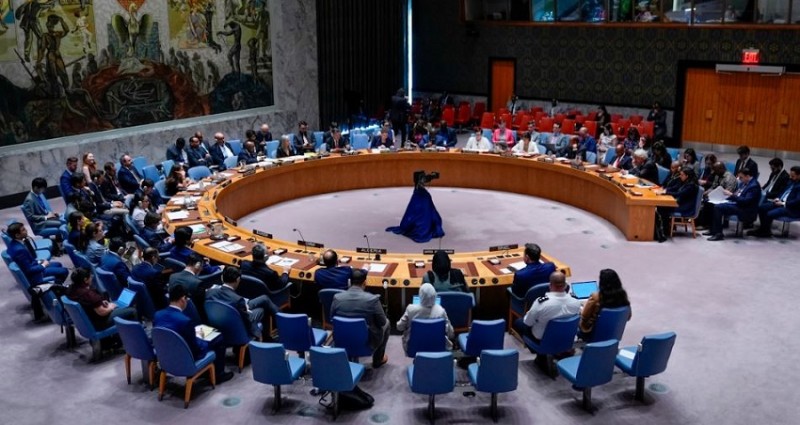
The United Nations Security Council has endorsed a US-proposed plan for a ceasefire between Israel and Gaza. This plan outlines conditions for a "full and complete ceasefire," the release of hostages held by Hamas, the return of the remains of deceased hostages, and the exchange of Palestinian prisoners.
Fourteen out of the fifteen Security Council members voted in favor of the US-drafted resolution, with Russia abstaining. The resolution indicates that Israel has accepted the ceasefire proposal and urges Hamas to agree to it as well.
This move aligns the Security Council with several governments and the G7 group of the world's richest nations in supporting the three-part plan introduced by President Joe Biden on May 31. The vote is expected to increase pressure on both sides to respond positively to the proposal, aiming to end the ongoing conflict.
US Secretary of State Antony Blinken has been working to build support for the peace deal, meeting with foreign leaders, including Israeli Prime Minister Benjamin Netanyahu. Just hours before the UN vote, Blinken stated, "If you want a ceasefire, press Hamas to say, yes."
Hamas has expressed support for parts of the plan and issued a statement "welcoming" the Security Council resolution. However, the group is likely to seek guarantees that the plan will lead to a permanent ceasefire and a full Israeli withdrawal from the Gaza Strip. Hamas's political leadership in Doha has yet to formally respond to the proposal, according to US and Israeli officials.
The plan includes a significant reconstruction initiative for Gaza, which has been heavily damaged by the conflict. It consists of three phases:
A hostage-prisoner swap and a short-term ceasefire.
A permanent end to hostilities and a full withdrawal of Israeli forces from Gaza.
A long-term reconstruction plan for Gaza, initiating a multi-year effort to rebuild the enclave.
The resolution was passed 10 days after President Biden announced that Israel had agreed to the plan, although Prime Minister Netanyahu has not yet formally endorsed it. President Biden framed the peace initiative as Israeli-driven, but acknowledged the challenges within Israel's ruling coalition, where some far-right ministers oppose the deal, potentially threatening the government's stability. The recent resignation of former general Benny Gantz from the war cabinet has further exacerbated this instability.
President Biden's social media account highlighted the passage of the resolution, stating, "Hamas says it wants a ceasefire. This deal is an opportunity to prove they mean it." US Ambassador to the UN, Linda Thomas-Greenfield, commented, "Today we voted for peace."
UK Ambassador Barbara Woodward described the situation in Gaza as "catastrophic," calling for both parties to seize this opportunity for lasting peace. UK Foreign Secretary David Cameron also welcomed the resolution.
The conflict began on October 7 when Hamas attacked southern Israel, resulting in the deaths of approximately 1,200 people and the taking of 251 hostages. The Hamas-run health ministry reports that the death toll in Gaza has exceeded 37,000 since Israel's response to the attack.
Gaza Conflict Updates: Hamas Accuses Israel of War Crimes, US Consulate Vandalized in Sydney
UN to Declare Israel and Hamas Violating Children's Rights in Armed Conflict
Gaza Conflict Sparks New Clashes Between Israel and Hezbollah